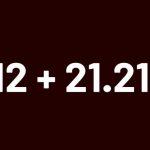QUIZ: Only a 2010s music expert can score 12/15 in this quiz
Quiz: 2010s music expert only score 12/15 in this quiz
Summer is here, and it's time to turn up the volume and enjoy some great music. Whether you're lounging by the pool, hitting the beach, or just cruising around town, there's nothing like a perfect summer song to set the mood.
But with so many great songs out there, it can be tough to choose just one. That's where our "Guess Your Song of the Summer" quiz comes in.
Our quiz is designed to help you discover the perfect summer anthem based on your personal preferences. We'll ask you a series of questions about your favorite genres, artists, and moods, and use your answers to generate a customized playlist of songs that are sure to get you in the summer spirit.
Whether you're into pop, rock, hip-hop, or something in between, our quiz has got you covered. So why not give it a try and see if we can guess your song of the summer?
Who knows, you might just discover your new favorite summer jam.





